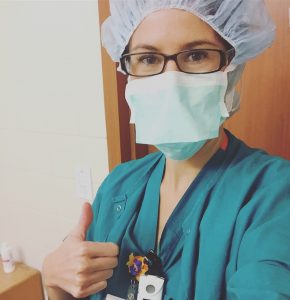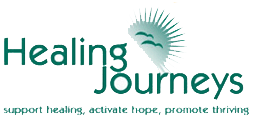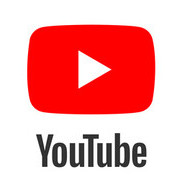by Lindsay Kimmel
 My biggest problem on August 20, 2018, was whether or not to feature a raw bar at our 200-person wedding in Healdsburg. Then I received a phone call from the nurse. Come see the oncologist. Immediately.
My biggest problem on August 20, 2018, was whether or not to feature a raw bar at our 200-person wedding in Healdsburg. Then I received a phone call from the nurse. Come see the oncologist. Immediately.
My whole world was altered in a minute.
“You have cancer,” echoed in my mind from some faraway place. The world narrowed to that sterile hospital room. All I could look at was the faucet dripping into the sink. I considered sticking my head underneath the cold water and washing away the despair. I stepped through a veil that day. There was a clear before and after.
I was diagnosed with stage IV cancer at age 31. My entire world was tilted off its axis. Initially, I could think about death existentially, but after getting sick it became clear to me that our lives are built with paper walls. No one is exempt from the breakdown of the human body. Even as a nurse, where I had witnessed the dying process, there was a degree of separation between the end and me. I was the professional and they were the patient. I was immune to sickness; they would die.
After a 16-hour surgery to remove the aggressive cancer from my body, I was advised that this was a cell type even these brilliant oncologists had never seen before. They had no data, no statistics to fall back on. The treatment was unknown, and they would make decisions based on analogous cancer types, like pancreatic cancer. The one that kills you in weeks.
Since 2018, I’ve endured three harrowing surgeries, chemotherapy, two rounds of radiation, and currently I am enrolled in a clinical trial for a new immunotherapy drug.
The COVID-19 virus and the cells growing in my body share a commonality. They elicit fear and uncertainty. The most knowledgeable doctors with years of experience and prestigious journal articles can’t offer a cure or even reassurance. We are all contributing to future research. Hope is being created in real time.
A cancer diagnosis is boot camp for a pandemic. Constantly living in a hypervigilant state, conjuring up a million “what ifs.” My threshold for pain and anxiety is tested on a daily basis. The world is going through its own form of training right now.
One of the most isolating parts of tragedy is that your world stops suddenly while everyone else continues living. You’re on an island of grief, and people are still posting on Instagram. At first, I couldn’t wrap my head around it. When the COVID quarantine went into effect, I remember thinking, “Welcome to the club of the afflicted.” In an instant, the world met me where I was. The entire globe is confronting the fragility of human life. Alone, but together in the abyss.
The beautiful part of vulnerability is that the rawness opens you up. I remember feeling so exposed when I got sick. A gaping wound with legs. There’s a cliché, a quote about cracks allowing space for the light to get in. I can say firsthand, it’s true. The depth of love that I allow myself to feel is directly related to how much I let in my suffering. The deeper the crack, the more potential for light.
The little and big things that my community offered to my family and me those first few months filled in those ragged cracks. The homemade meals, flowers. Flights to our bustling home, where relatives joined to hold each other. The letters, care packages, and gifts were overflowing. For the first time, I realized how greatly I was loved.
I remember reading, somewhere, that when monkeys are anxious, they all quickly huddle together and groom each other. That’s what I felt. Even in the darkness, I was the monkey in the center of the circle—protected, cared for, cleansed.
The pandemic is rife with pain and suffering. People are dying on ventilators, in hospitals, without their family members present. They’re out of work, food deprived, and pushed to their psychological limit. But they’re not alone. I know nurses who are volunteering to sit with sick people in the ICU as they take their last breath. Strangers are offering their hearts to those hurting. That’s the true essence of compassion, of being human. We all have a desire to be of service, and we are biologically wired to share this experience. Broken and fragile, we are looking each other in the eye (or on Zoom) to say I see you. I love you. You are not for nothing.
There will be no “normal” after this pandemic ends, as we start to rebuild our lives. People we love may die. Many will lose any sense of security—jobs, homes, and food to put on the table. Yet, for all of us, triviality will come under siege. Eventually, the questions about whether or not to have exquisite appetizers at your wedding fall to the wayside.
I never got the wine country wedding, the raw bar, the celebration with loved ones.
But I still got love.
What I got was a deeper version of devotion. My husband married me the same day I got diagnosed. We went to City Hall, looked each other in the eyes, and committed ourselves to uncertainty together.
Till death do us part.
For the first time in almost two years, I’m disease free. The medical community—and I—are surprised that I’m still here today, healthy and vibrant. Science has given me more time than I anticipated. It can’t take away the uncertainty, the not knowing, the capricious knife’s edge of each breath. Yet now we, as humans in a pandemic, are walking on the knife’s edge alongside each other.
As we sit with our thoughts—our physical limitations—in isolation, we have the chance to confront some of life’s most fickle questions. Can we embrace precarity without clinging to details as a way to cope? Can we turn tragedy into an opportunity to welcome suffering, experiencing something richer by the nature of these cracks? This is our chance to walk through the veil together—bound by love in the midst of tragedy.
Bio: Lindsay Kimmel — I am a women’s advocate, I am a nurse, I am a cancer survivor, I am a daughter, wife, and sister. I am a culmination of all the experiences in my life. I will never let my cancer diagnosis define me but adversity can be a turning point. I’ve learned grace still exists in the most harrowing circumstances. My goal in sharing my story is to create a lifeline for young people diagnosed with a disease that changes their life. I know how isolating a medical diagnosis can be. Suddenly you’re on an island while the rest of the world continues living. I want to be a beacon of hope and a safe place to buoy for those swimming in their own ocean of sadness. There’s always light in the darkness. You can reach out to me personally at Linds.kimmel@gmail.com or call me directly at (925) 360-4810.


